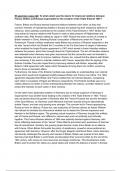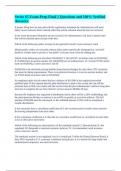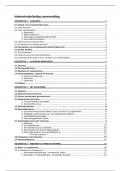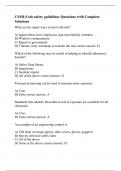Exam (elaborations)
AQA A LEVEL HISTORY, international relations specimen essay Q2
- AQA A LEVEL HISTORY, component 2K international relations - specimen essay Q2 model answer - To what extent was the desire for improved relations between France, Britain and Russia the reason for the formation of the Triple Entente
[Show more]








